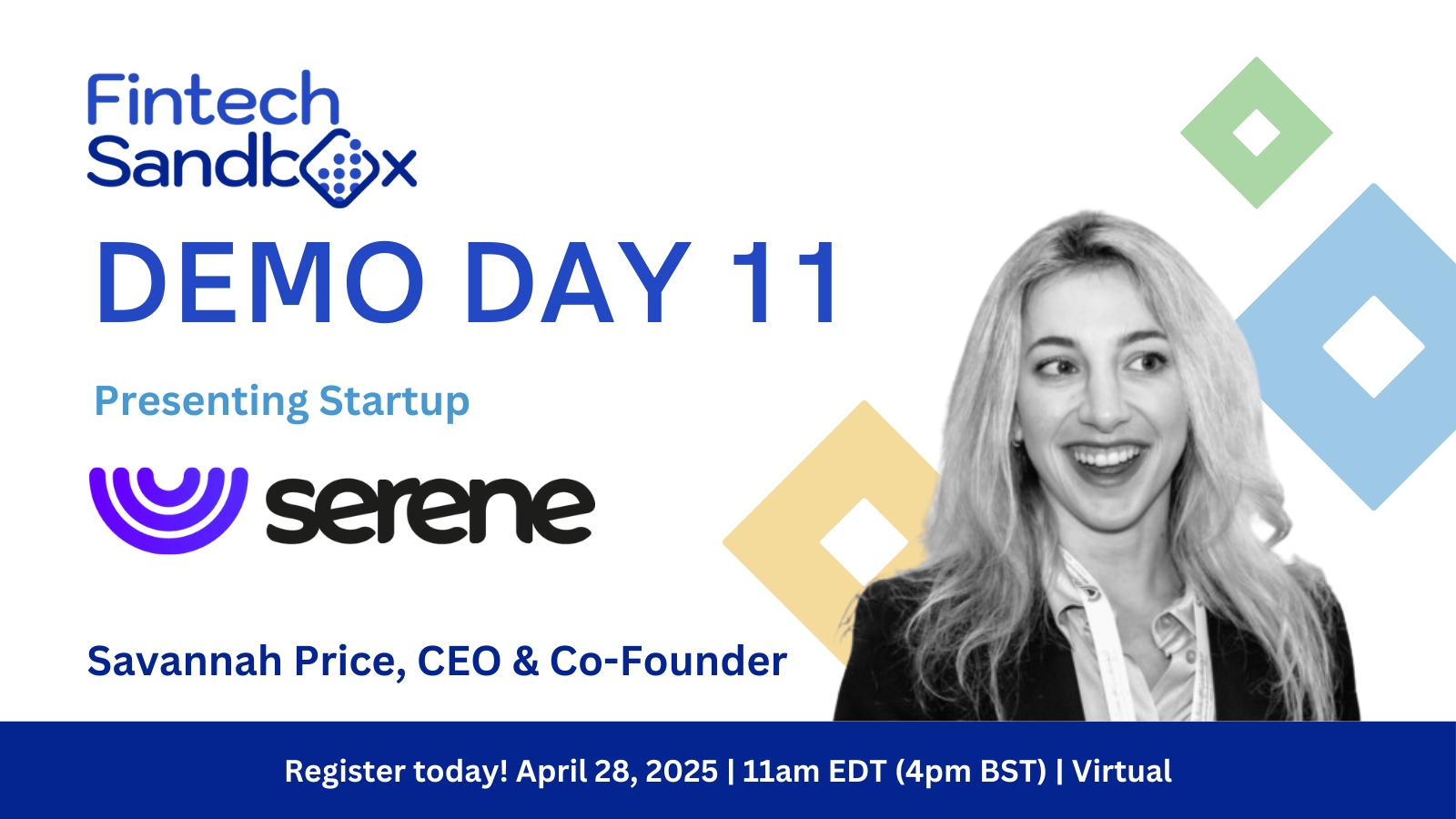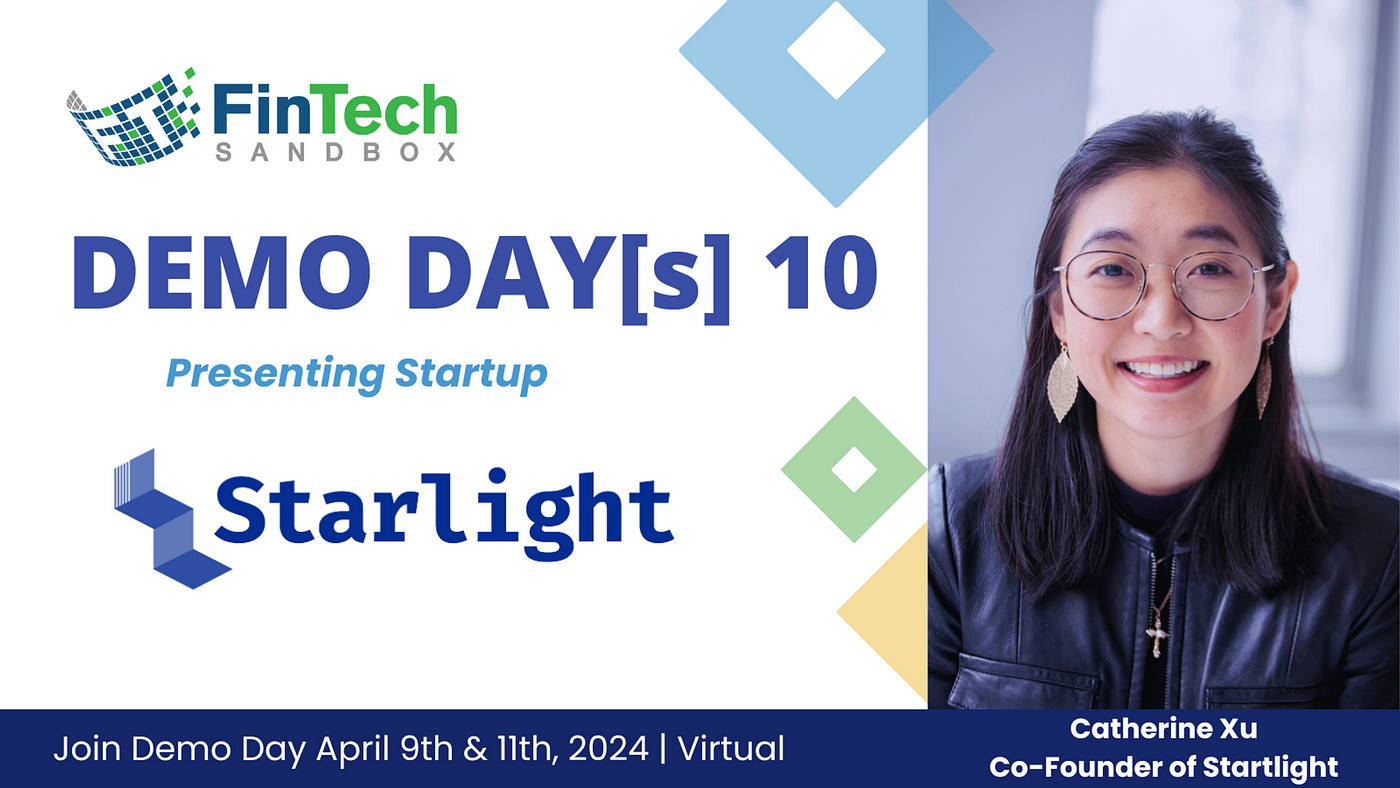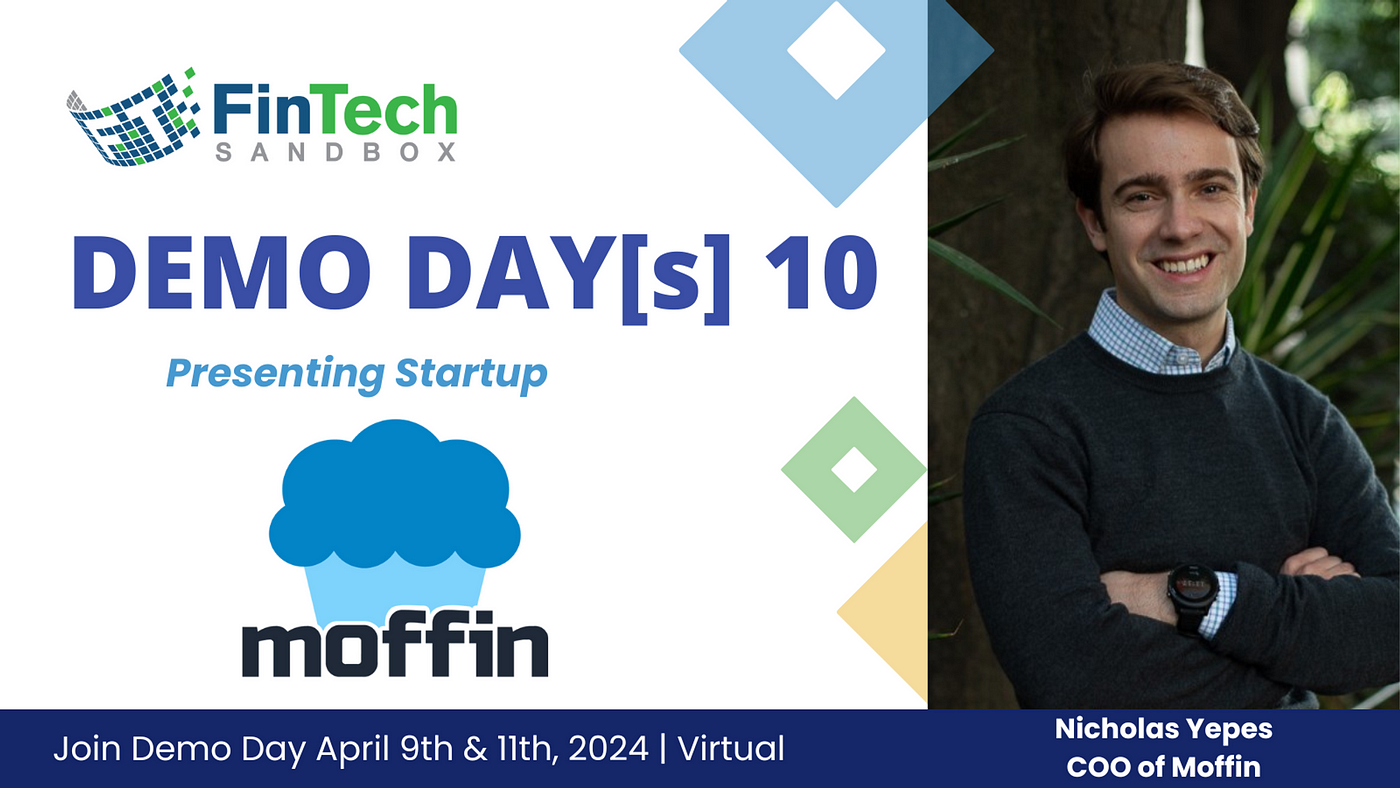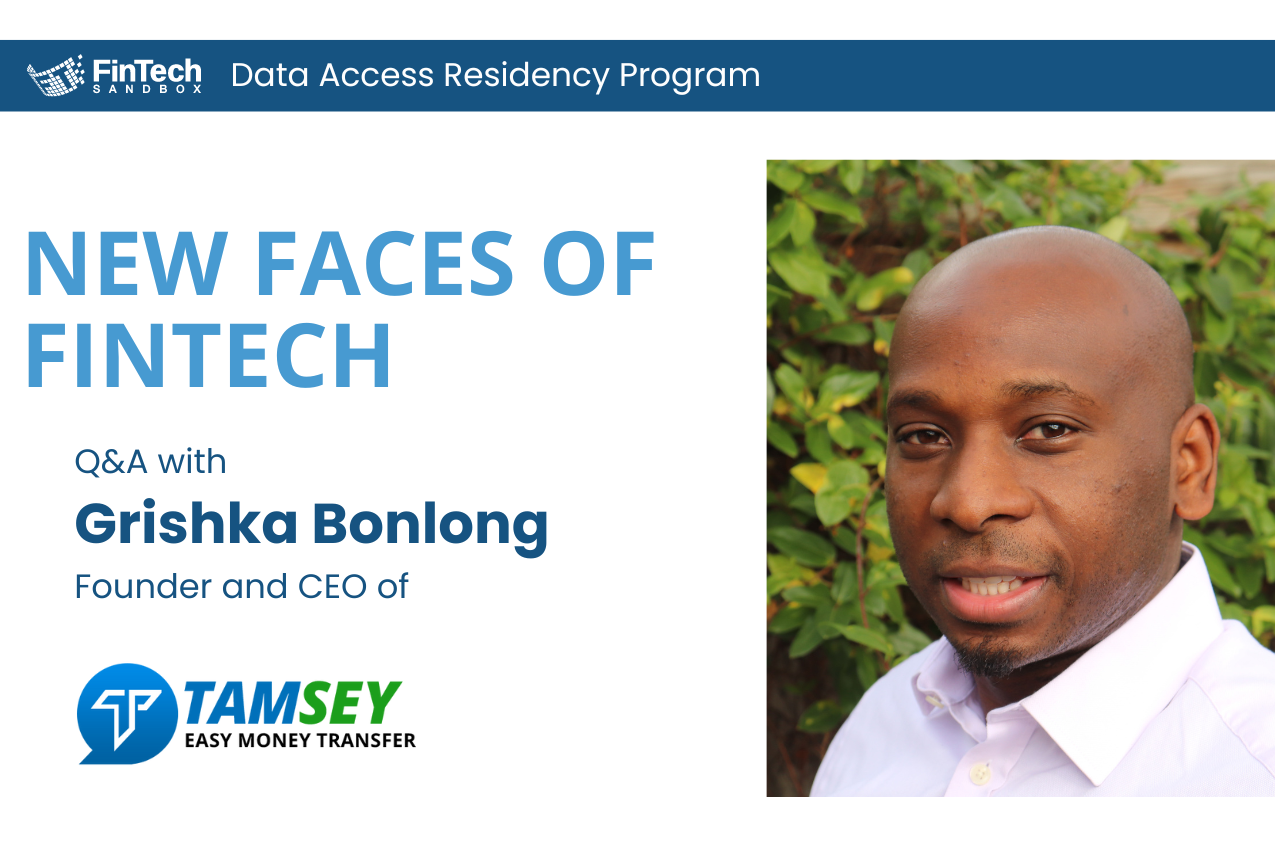This year, Fintech Sandbox Demo Day will take place on April 28. The presentations will be virtual and the event, as always, is free. Demo Days are exciting because we get to showcase startups that are on the very cutting edge of innovation and you get to see what they’re up to before they’re discovered.
Over the next few weeks, we’ll highlight this year’s presenting entrepreneurs. Today, we’re talking to Savannah Price, Co-founder and CEO of London-headquartered fintech Serene. Serene is transforming customer care in financial services by helping banks and financial organizations proactively identify, predict, and support customers in vulnerable circumstances.
Savannah, tell us a bit about Serene. What problems are you solving?
Serene is an AI-driven platform tackling one of the biggest blind spots in financial services — how to identify and support vulnerable customers before they fall into financial distress. The need for this has never been greater. Two-thirds of UK adults show characteristics of vulnerability, whether due to life events, emotional distress, or financial hardship. These customers are 7 times more likely to experience problem debt, scams, and financial exclusion, yet fewer than 10% are detected by firms today. Right now, most institutions rely on reactive methods, stepping in only after a missed payment or a collections call. But by then, it’s often too late.
We use AI-driven behavioural analysis to detect early signals of vulnerability — whether it’s due to a life event, emotional distress, or financial instability. This allows firms to act proactively with tailored interventions, reducing bad debt, improving retention, and ensuring regulatory compliance.
For businesses, vulnerability management isn’t just a compliance requirement — it’s a commercial opportunity. Done right, it leads to stronger customer relationships, reduced losses, and better financial outcomes for everyone.
How does Serene leverage behavioral science?
Financial vulnerability doesn’t appear out of nowhere — it builds up over time, often reflected in subtle changes in behaviour. At Serene, we apply behavioural science principles to transactional data to detect these shifts before they escalate into financial distress.
For example, a customer going through a bereavement, mental health struggles, or job loss might not immediately default on payments, but their transaction patterns, spending habits, or engagement with financial services may change. By analysing real-world behavioural data, we can detect these early warning signs and provide actionable insights for institutions to intervene in a way that’s both personalised and ethical.
Our approach ensures that support isn’t just available — it’s timely, relevant, and effective.
What is your company’s origin story?
My journey to founding Serene was deeply personal. Growing up, I saw how my siblings’ struggles with poor mental health showed up in their financial behaviour — missed payments, erratic spending, sudden withdrawals. These were subtle signals that something was wrong, but no one was connecting the dots.
That was my aha moment. Vulnerability isn’t just about financial hardship — it’s about life events, emotional distress, and health challenges that impact financial well-being. Yet, businesses were still using outdated, reactive methods to support customers — leaving millions of potentially vulnerable customers both unidentified and underserved.
I founded Serene to change that. By combining AI, behavioural science, and transactional data analysis we help institutions identify vulnerability early, so they can act before customers reach crisis point — protecting both people and businesses.
Can you describe what it’s been like to be part of the Fintech Sandbox community?
Being part of the Fintech Sandbox community has been an absolute game-changer for Serene. One of the biggest barriers to innovation in financial services is access to high-quality data, and the Fintech Sandbox has helped us overcome that challenge.
It’s also been invaluable to be surrounded by like-minded innovators solving complex financial problems. The ecosystem provides not just data access but also mentorship, networking, and industry collaboration — all of which have helped us accelerate our growth and refine our product offering.
Why is data access important to your startup?
For AI-driven fintech solutions, data is everything. Without access to real-world financial data, it’s impossible to build models that accurately detect early signals of vulnerability.
Traditional financial data — like credit scores — only tells part of the story. To truly understand vulnerability, we need transactional behaviour, spending patterns, and interaction metrics. But many startups struggle to get access to this kind of data.
That’s why initiatives like Fintech Sandbox are so important. By providing access to high-quality datasets, they help companies like Serene train, test, and refine AI models in a way that ensures accuracy, fairness, and real-world applicability.
What milestones has Serene achieved so far?
We’ve moved fast — validating our product, securing major customers, and building a strong pipeline. In just a few months, we’ve gone from regulatory validation to commercial traction, with a clear path to scaling across the industry.
A major milestone was securing FCA Sandbox approval, allowing us to test our technology in a real-world, regulated environment — a huge credibility boost when working with financial institutions. We’ve also been selected for key industry innovation labs like FinTech Innovation Lab London and TSB Labs, which has accelerated adoption and opened doors to new partnerships.
The market response has been incredible. We’ve built a £45M pipeline, with 70% of leads coming inbound, proving the strength of demand. We’ve secured 2x commercial deals and we’ve secured investment from a tier 1 UK bank, further validating the urgent need for our solutions.
Beyond direct sales, we’re unlocking growth through strategic partnerships, which now give us direct access to 85+ financial institutions. We’ll be announcing more details soon, but this marks a significant step toward embedding Serene into the broader financial ecosystem.
What trends in fintech are you most excited about?
There are a few major shifts happening in fintech that I find really exciting:
- The rise of AI-native financial services. AI is no longer just a tool — it’s becoming central to decision-making across lending, risk management, and customer support.
- Embedded finance & proactive financial wellness. Financial institutions are shifting from being transactional to becoming proactive partners in customer well-being.
- Regulatory innovation. With regulations like the FCA’s Consumer Duty, firms are now being held accountable for delivering better customer outcomes — and fintech is playing a huge role in enabling that.
All of these trends reinforce the need for smarter, more ethical AI-driven solutions — which is exactly where Serene fits in.
How does Serene think about leveraging AI in a differentiated way?
Serene is AI-native, meaning AI is embedded in both our product suite and internal operations, allowing us to continuously refine our models and improve customer outcomes. Unlike traditional approaches which rely on static vulnerability indicators of vulnerability or manual self-disclosures, which are often backward-looking, our approach is designed to predict vulnerability before financial distress escalates.
We use a combination of supervised and unsupervised learning to detect both known patterns of vulnerability and emerging risks that traditional models miss. Our machine learning-powered behavioural insights go beyond static affordability checks, analysing real-time transactional and behavioural data to flag early warning signs. We also leverage conversational AI to enhance — not replace — human decision-making, equipping agents with real-time insights so they can provide personalised, proactive support at scale.
Beyond our product, AI plays a critical role in how we develop, test, and optimise our models. We use automation to continuously refine our algorithms, ensuring they remain accurate, ethical, and aligned with evolving regulations. For us, AI isn’t just about automation — it’s about fundamentally transforming how businesses identify and support vulnerable customers in a scalable, responsible way.
What’s next for Serene?
We’re laser-focused on scaling our impact. Some of our next big moves include:
- Expanding our partnerships with financial institutions, insurers, and telcos.
- Enhancing our AI models with additional behavioural datasets.
- Launching new self-service integrations to make adoption frictionless.
- Expanding into international markets, starting with Europe.
Our mission is to make proactive, ethical vulnerability management the industry standard — and we’re just getting started.
_ _ _ _ _ _ _ _ _ _ _ _ _ _ _ _ _ _ _ _ _
To hear more about Serene and 4 other exciting fintech startups, be sure to register for Fintech Sandbox Demo Day 11!







![Meet Starlight — A Demo Day[s] 10 Presenting Startup](https://www.fintechsandbox.org/wp-content/uploads/2024/04/Starlight_Blog_Founder_Header.png)

![Meet Moffin — A Demo Day[s] 10 Presenting Startup](https://www.fintechsandbox.org/wp-content/uploads/2024/03/Moffin_Blog_Founder_Header.png)

![Meet Nufi — A Demo Day[s] 10 Presenting Startup](https://www.fintechsandbox.org/wp-content/uploads/2024/03/Nufi_Blog_Founder_Header-2.png)


